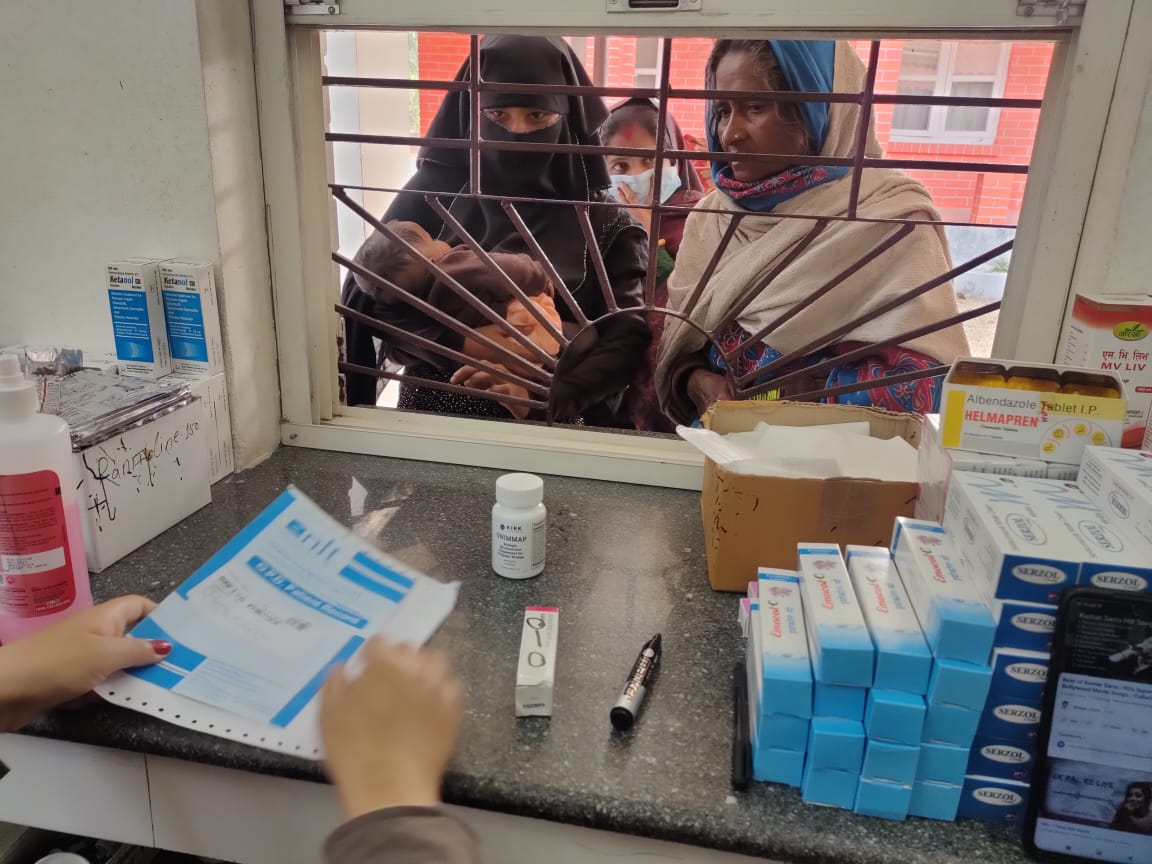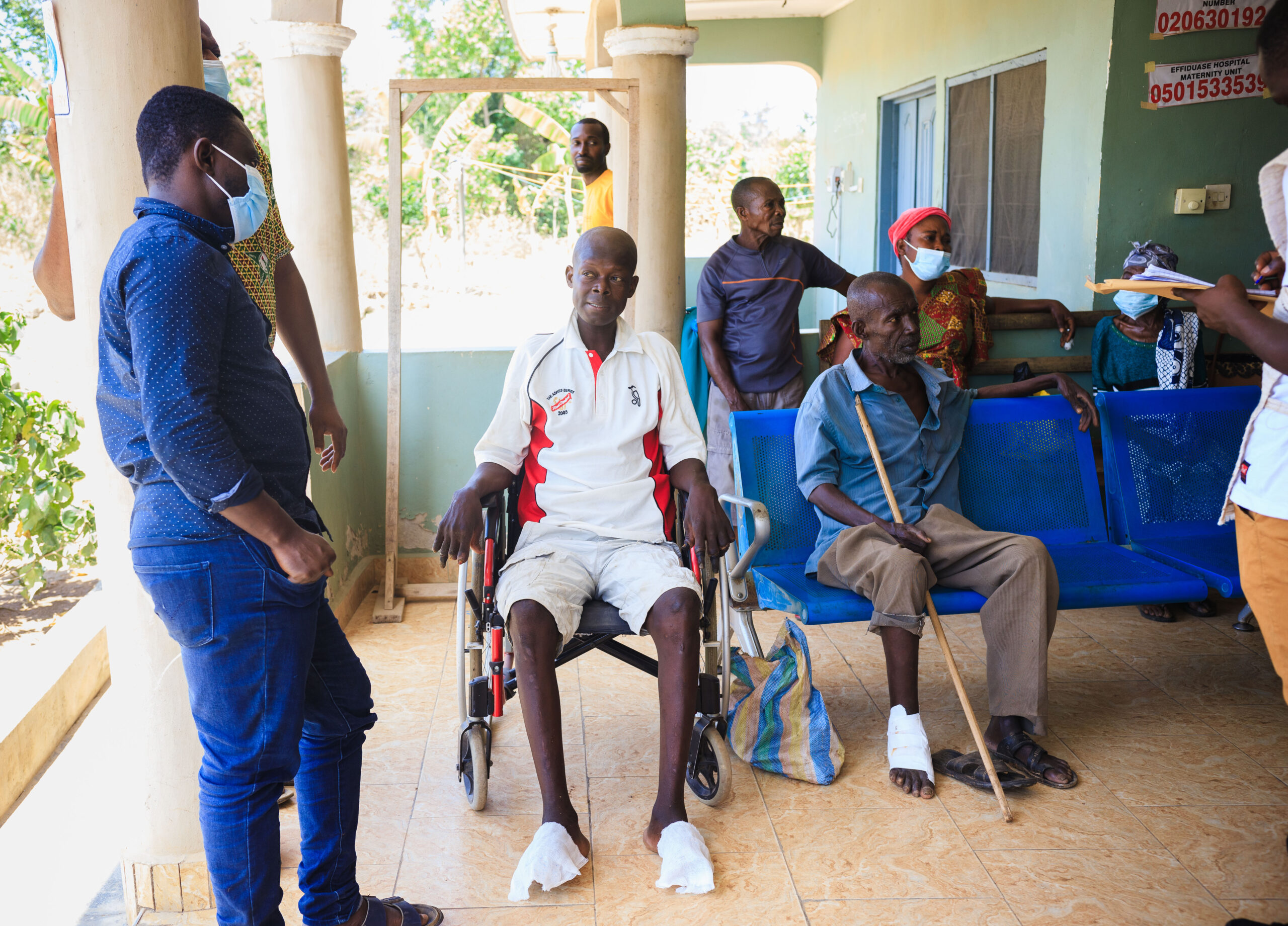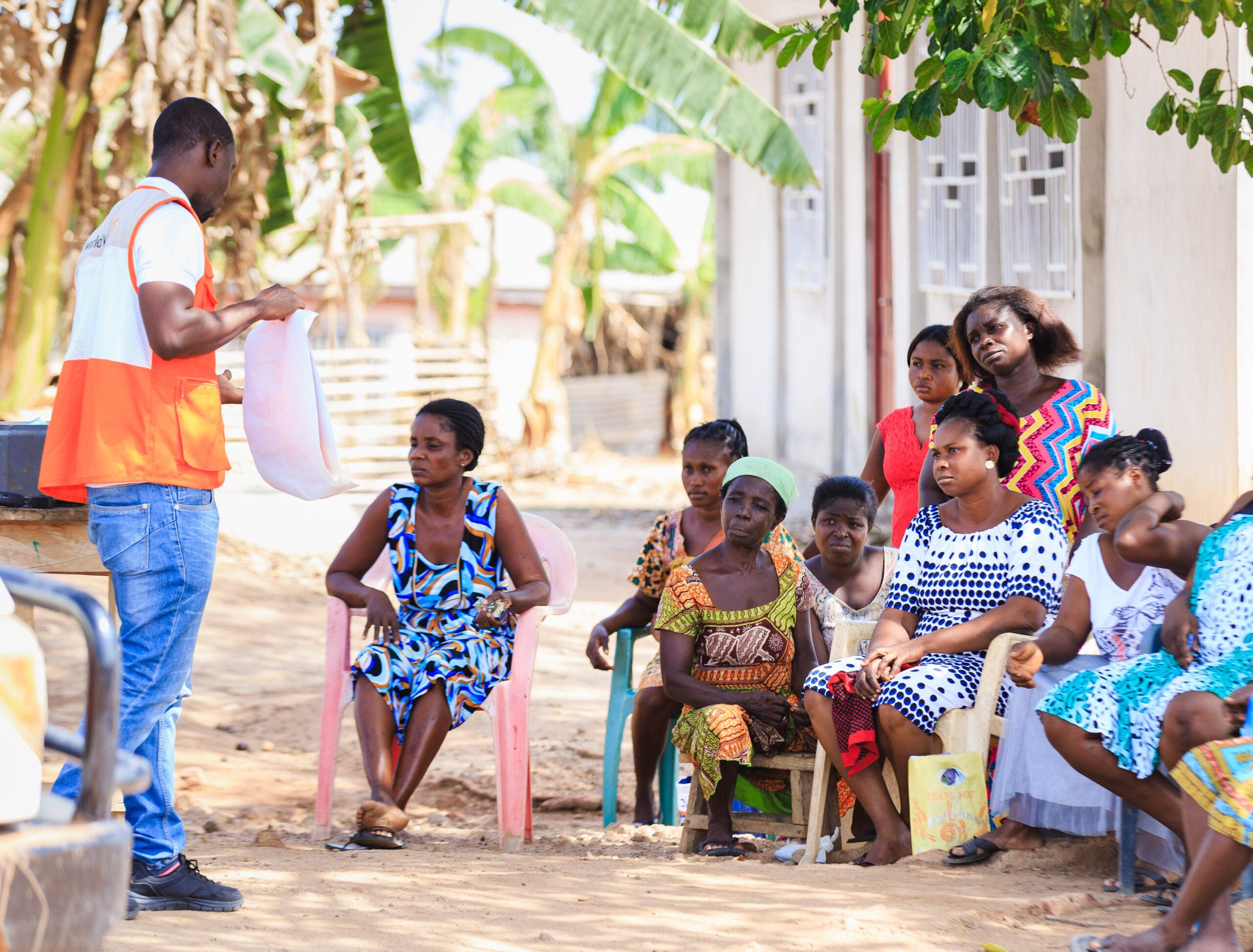Your Gifts at Work: January-March 2023
Partner Hospital News | Ghana Case Finding | Breaking Strongholds Projects | Remote Footwear in India | Jagruti Updates
April 30, 2023
Supporting Partners through the Pandemic: Thank you!
Thanks to your faithful support of American Leprosy Missions through the COVID-19 pandemic, we were able to continue supporting our Christian partner hospitals with special funding through the worst days of border closures, shutdowns and supply shortages.
In 2023, our partner, Lalgadh Leprosy Hospital in Nepal, is finally reporting inpatient and outpatient numbers that are near their “normal,” pre-COVID numbers! Thanks to your gifts, we sent a medical supply shipment to Lalgadh in February. This means more people will be treated faster, at lower cost, so the hospital can redirect their resources to other urgent needs.
Our partner hospital in India, the Schieffelin Institute, was recently recognized by Christian Connections in International Health (CCIH) for steadfast work during the pandemic. CCIH’s “Hope in Health” award honors a team or project that nurtured hope, adapted when things weren’t working, or persevered in the face of hardship. We’re proud to work alongside Schieffelin and many others that embody this kind of faithfulness.

Lalgadh’s pharmacy is restocked, thanks to your generous gifts!
Reaching People With Critical Care in Ghana
Back in 1998, Ghana succeeded in bringing down its leprosy case numbers. However, low case numbers meant that the national health system stopped its large-scale campaigns to find people affected and refer them to care. The first district-wide campaigns since 1998 were completed in 2018 and 2019, showing a dramatic increase in people affected by leprosy.
With the Global Partnership for Zero Leprosy, we are supporting Ghana’s national leprosy program to identify people affected in the two districts with highest numbers, ensuring suffering people have the care they need and distributing preventive medication to others at risk. This project in two districts will help Ghana prepare to do the same work nationwide, one of the first countries to make this effort. In January and February, the leprosy preventive treatment was delivered and distributed to the appropriate districts. Thank you for supporting ALM and our partners to find people affected and get them the care they need.

We’re helping Ghana’s national leprosy program find people like Yaw Jobs, who’s had leprosy symptoms for only 6 months but already experienced terrible effects on his hands and feet. Your support helps us prevent and treat cases like his.
Breaking Strongholds in Ghana and Côte d’Ivoire
In the past year, your gifts helped us fund new projects with four Christian organizations and hospitals in Ghana and Côte d’Ivoire. Each of these projects strengthens local health providers and trains community members to identify people affected by leprosy and other neglected tropical diseases (NTDs). Trainings like this help more people get the care they need!
In March, the Côte d’Ivoire project with SMAID screened 140 people for skin diseases like leprosy, the flesh-eating Buruli ulcer (BU), and lymphatic filariasis (LF).
In Ghana over this quarter, Agogo Presbyterian Hospital provided surgeries to 2 people suffering from BU, and Agogo’s staff visited 45 communities in 3 districts to educate adults and children about health topics like NTDs and find people who may need clinical evaluation. This quarter, World Vision-Ghana educated 640 people about NTDs, and their trained volunteers referred dozens for clinical evaluation. So far, 66 cases they found have been confirmed, which means those people will now receive appropriate treatment and care. Thank you for helping us make a difference for neglected people across West Africa!

World Vision-Ghana trainees speaking with a community group about NTDs. Thanks to your support, people are learning about these diseases and receiving the care they need.
Remote Solutions for Specialized Footwear
Do you remember when our partner in India, the Schieffelin Institute, installed a CAD/CAM machine to improve its footwear workshop? The CAD/CAM system speeds up production time on custom footwear for people affected by leprosy. Now Schieffelin is receiving digital foot scans from remote locations, mailing custom insoles to people who would never be able to visit the Institute in person.
After ALM supplied a foot scanner to our Jagruti project in Bihar, India, project staff sent 35 scans of badly deformed feet to the Schieffelin Institute in March. With these scans Schieffelin can produce insoles for each person and mail them back to Bihar, 1500 miles away. This process makes it possible for people in remote locations to receive a level of care they couldn’t access before!

Because the foot scanner creates a digital file of a patient’s feet, that file can be emailed for remote insole production at Schieffelin. This innovation can make a difference for thousands of people!
Changing Communities Across India and Nepal
Our Jagruti WASH + NTD project in Bihar, India commemorated World NTD Day on January 30 by celebrating a new NTD clinic and integrated footwear unit at the area community health center: the result of months of advocacy and coordination by Jagruti project staff. This is the only health center serving 380,000 people, including more than 5,000 people affected by chronic NTDs like leprosy.
At the clinic’s opening ceremony, we also dispersed small grants to 20 local business owners who live with severe disability from leprosy or lymphatic filariasis. This new pilot project provides business training and a $300 business grant in three installments. Read about the hope this has brought Vinod, a welder with severe LF disability!

Grants for business owners like Meera Devi (left) and Subodh (right) allow them to make improvements they couldn’t afford before. These changes are giving them hope for the future–thank you for supporting this pilot project!
This quarter, the Jagruti project in Bihar trained 132 non-formal healthcare providers to recognize NTDs and refer people for treatment. Since these providers are often the first point of contact for people seeking medical care, those suffering from NTDs will receive earlier diagnosis and treatment.
In the Jagruti Nepal project, the CRPs have been advocating with local governments for safe water, toilets, and drainage infrastructure and participating in community health activies. The project is also jointly constructing handwashing stations with two local schools. As the women build these relationships and speak up for community needs, they’re earning respect among their neighbors and local officials.
Working with local government and health officials, educating neighbors, and responding to community needs all create positive outcomes for tens of thousands of people across Bihar and Nepal. Thank you for supporting these incredible women!
